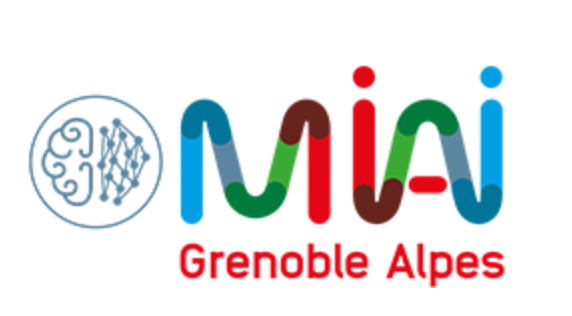7th edition of the Winter School on Algorithms in Structural Bioinformatics (AlgoSB):
Machine Learning Methods to Analyze and Predict Protein Structure, Dynamics and Function
Apprentissage machine pour la prédiction de structure, dynamique et fonction des protéines
8 – 12 November 2021
|
Scientific Committee
Frédéric Cazals (Inria Sophia-Antipolis-Méditerranée) |
Program Committee
Frédéric Cazals (Inria Sophia-Antipolis-Méditerranée) contact: algosb-coordinators@laas.fr |
AlgoSB is aimed at bringing together scientists from different disciplines (computer science, biophysics, biochemistry, mathematics, …) in a pleasant setting amenable to learning new approaches and creating synergies for future work.
The focus of AlgoSB 2021 is «
Machine Learning Methods to Analyze and Predict Protein Structure, Dynamics and Function » (more details are provided on the lectures page).The AlgoSB school is open to students and researchers wishing to integrate new theoretical approaches and methodologies into their research or to extend them in new directions. The school is open to senior and junior scientists from academia and industry as well as PhD students and postdocs. A maximum of 40 participants will be selected. More details are provided on the registration page.
Previous editions:
- Structure-centric methods in RNA bioinformatics, Jan 14-18, 2019, Marseille-Luminy, France
- Computational Protein Design, Nov 26 – Dec 1, 2017, Cargèse (Corsica), France
- Sampling of bimolecular systems, Nov 29 – Dec 4, 2015, Cargèse (Corsica), France
- Modelling large macromolecular assemblies, Dec 8-12, 2014, Sophia-Antipolis, France
- Modelling protein flexibility, Nov 25-29, 2013, Mondonville (Toulouse), France
- Modelling protein-protein interactions, Dec 2-7, 2012, Sophia-Antipolis, France
To kick things off, each participant is expected to provide a 5-minute presentation of their research interests on Sunday evening.
The morning sessions (Monday to Friday, starting at 9 a.m.) will be devoted to the following lectures:
Monday: Bettina Keller and Cecilia Clementi, Learning models of complex dynamics from simulation data
Tuesday: Tony Lelièvre and Gabriel Stoltz, Constructing collective variables using Machine Learning and free energy biased simulations
Wednesday: Sergey Ovchinnikov, Unified framework for understanding and evaluating generative sequence models
Thursday: M. Weigt, Wandering through sequence space : data-driven landscapes and protein evolution
Friday: Sergei Grudinin and Elodie Laine, Machine learning in the post CASP14 era : from protein structure to protein interactions






